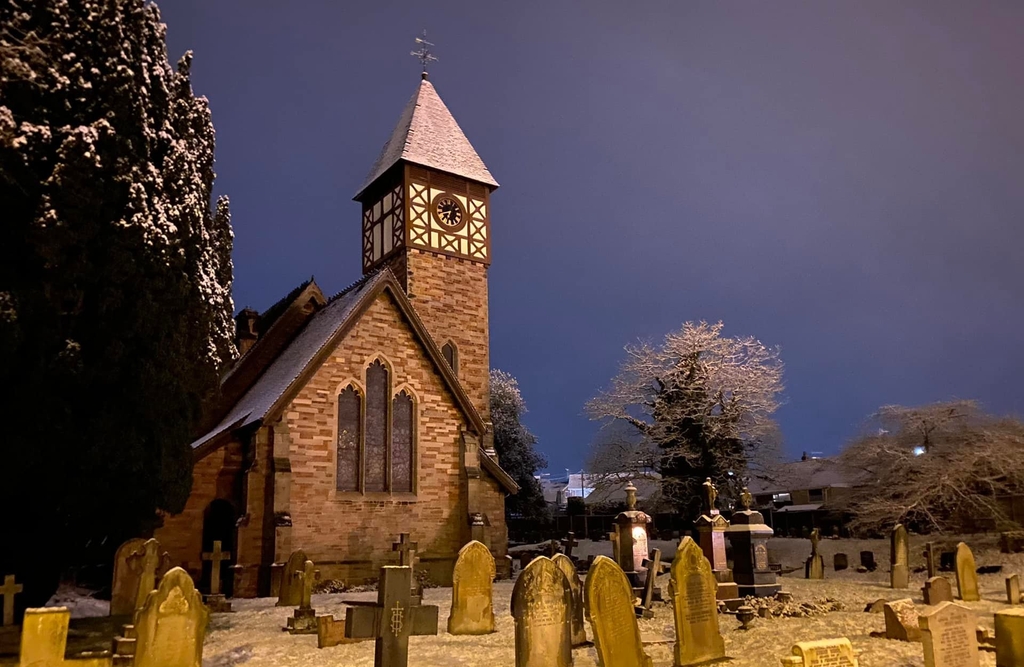At the start of Advent, the Church of England begins a 'new year' in the Lectionary; that's a well-ordered series of daily Bible readings, all aimed at helping Christians get a better understanding of the book that guides their lives and is the principal record of the life of Jesus.
The Lectionary readings change so that each year one of the stories of Jesus's life from either Matthew, Mark or Luke is concentrated on. Lots of other readings also feature, from the poetry and emotions of the Psalms to the end-of-days clash of cymbals that is Revelation, the last book of the New Testament.
The first reading from Luke in 'this year's Lectionary' is a bit like Revelation. It tells the story of how Jesus is warning his listeners to be ready for the time when God says, 'That's it. I'm ending it all now, taking a look at each one of you who has ever lived and deciding what to do about you'. You can imagine that believers were fairly keen to be on the right side with God at that moment!
Jesus, whose whole life, before and after his resurrection, was a story of love for human beings and God's creation, was just as keen for his followers when he spoke to them. He also knew how easily we get distracted by everyday matters, pleasures and annoyances. Of course he did; he was human too, just as likely to get angry, tired or be tempted by an easy life.
So in this reading from Luke, he spent a little time giving his followers a few pointers on what to watch out for as God got ready to call a halt before rebuilding everything. He talked about the kind of troubles and happenings that would be signs of that time and urged them to maintain their faith, keep on behaving the way he had taught and not get sidetracked by everyday events or wishes.
The problem created by talking like that is that it is very easy for people to get worked up into all sorts of states and behaviours by convincing them that 'the end times' just happen to be around the corner whilst they are alive. Whereas Jesus was as clear as he could be that he was not able to say when everything would be stopped, later leaders haven't been shy in using the idea to gain power and advance all sorts of ideas.
That's why you can find plenty of people in the USA who are convinced that not only are the end times imminent; they also think that they should be giving God a helping hand to make them happen. There are sincere members of churches who believe that causing a massive conflagration in the Middle East, spreading globally, will be the means for them and their selection of followers to ascend to heaven whilst the rest of humanity heads to a rather hotter place. Naturally the USA is not alone in this; the UK has its fair share of such people; their numbers tend to increase greatly at times such as AD 1000 or 2000, as if these man-invented dates meant something special to God.
Jesus was not telling us to ignore the rest of our lives and concentrate on prostrating ourselves in permanent prayer. Neither was he telling us all to club together to bring about the end of the world, something we seem to be fairly good at doing without divine encouragement. He was telling us to put God and his teaching at the centre of our lives; he was telling us to try to be like him as much as we could all the time. That's why, in other parts of the gospels, we read of the heavens opening and the voice of God saying, 'This is my beloved son. Listen to him.' So when we engage with the rest of the world, as we must and should to lead full lives, we should act from our faith and from how Jesus has taught us. If we carry on doing that, we don't have to worry about end times. Instead, we live in the moment, as Christians who bear witness to our faith, who can be seen by others as trying to follow our faith. Along the way we will fail. Jesus knew that too; that's why he said, 'I have come into this world for sinners.' But that is the always wonderful truth about Jesus: even though we fail, he loves us unconditionally and God forgives us. All that God asks is that we try. Amen.















